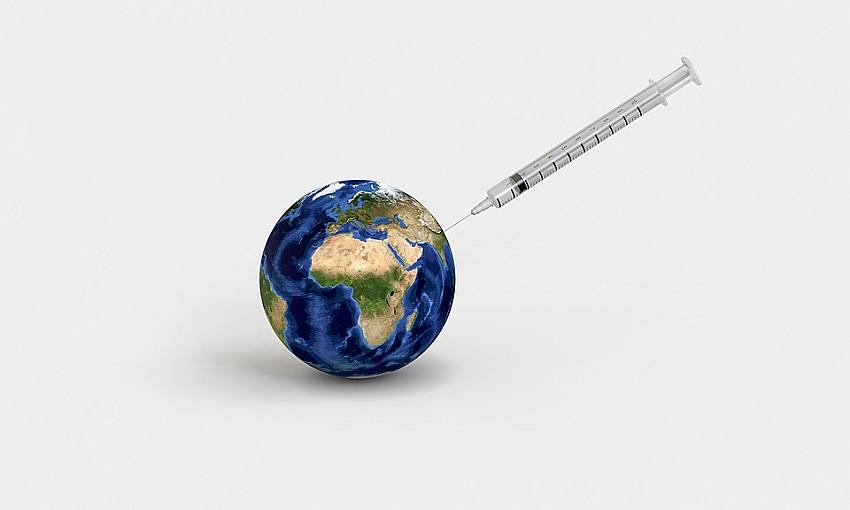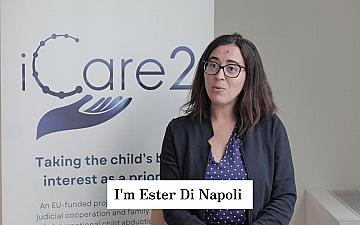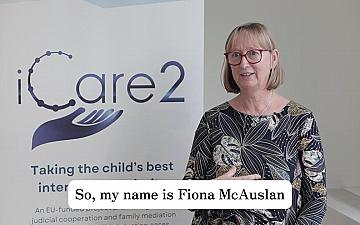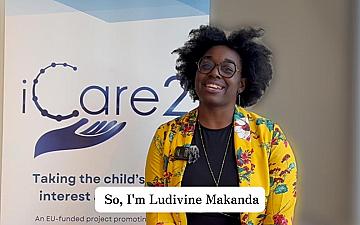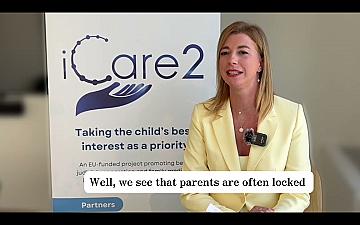At this moment, Dubai and Brunei lead the way with over 90% of their population being vaccinated, while there are dozens of countries with less than 10%.[i] In Bulgaria, about 30% are currently fully vaccinated.[ii] It is also important to note that vaccination rates vary considerably based on the ethnicity, education level, place of work and age of the individuals being considered. Of interest is the low level of young people vaccinated compared to the number of vaccinated over the age of 65 years in Bulgaria.
For example, a May 2021 study placed the 18-24-year and 24–39-year age groups among the least likely to be vaccinated in America.[iii] In the UK, a similar study found that the 16-29-year age group showed the most resistance against vaccination.[iv] In Bulgaria, the same tendency can be observed. The number of vaccinated individuals between 20 and 29 years is about 180 thousand, while in the 30-39-year age group it is nearly 300 thousand, between 40-49-years - 370 thousand, between 70-79-years - 270 thousand.[v] It is important to note that in order to draw a conclusion, one must compare these figures to the total number of inhabitants who fall within these age groups. An in-depth analysis would indicate that the percentage vaccinated in the 20-29-year age group is approximately 27%, the percentage vaccinated in the 70-79-year age group is close to 39%, and in the 40-49-year age group - 36%.[vi] This raises the question causes this low vaccination rate among the young.
On one hand, this can be explained by the lack of sufficient campaigns specifically targeting the young. The Bulgarian government has focused on persuading people over 65 years to get vaccinated through various methods, for example trough cash supplements for vaccinated pensioners.[vii] Meanwhile, other states have also focused on measures aimed at all citizens, these have included a wide range of rewards - free food, alcohol, vouchers and large cash prizes, in New York this cash incentive reached a colossal $5 million, which could be won by lottery by someone vaccinated.[viii] In Bulgaria, there was a lottery with prizes , but it lasted 1 month and did not have much resonance with the general public.[ix]
At the same time, misinformation among the young also plays a key role in keeping the rate of vaccination low.[x] Fake news can be detrimental to building young Bulgarians' trust in vaccines. There is a presumption in the public consciousness that the COVID-19 virus does not have a large effect on younger people does not pose a danger to them. However, this is not always the case and, in many cases, younger individuals also contract the virus with severe consequences.[xi] Even if some young people are not as affected by the virus, they can subsequently spread it and infect many others, putting them in danger.[xii] In these circumstances, it is evident how damaging fake news and misinformation can be, as they create conditions in which the virus continues to be ignored and maintains a high percentage of unvaccinated people, these people then have a significantly greater chance of spreading it.
Fake news against COVID-19 vaccines is often taken from foreign language websites without verification of its credibility and origin.[xiii] Often, this borrowed information is based on misleading or outright false claims. Much of it is without evidence and is from individuals who have no real knowledge or expertise in the field of medicine.[xiv] However, there are also original Bulgarian news and articles that are also based on manipulative and extreme claims. There is an interesting case where a website - Narodnavolq.com[xv], publishes articles on behalf of medical experts, but these experts turn out to be fictitious, and the publication uses the faces of existing medical workers, whose photos are stolen from other articles or hospital websites.[xvi] Such practice during a pandemic is unacceptable and should be sanctioned, but that topic is beyond the scope of this article.
In addition to misleading online news, fake information spreads very quickly and easily on social media through posts, publications in closed groups, and trough messages on chat platforms. There are dozens of Facebook groups with thousands of participants under various names: 'Antivaxxers United', 'Vaccine Free' and the like.[xvii] Petitions and template messages are often shared encouraging people to avoid vaccination and even to actively fight against its enforcement. In Bulgaria there is also an active political campaign against vaccination and frequent protests.[xviii]
These contradictory and unreliable sources of information slow down the pace of vaccination among all segments of Bulgarian society. They are especially harmful for young people who spend much of their time online, where such false information is constantly available and disseminated. Social networks are already committed to monitoring what information is shared[xix], but more effort is needed to effectively counter misinformation and its mass spread.
[i] Pettersson H, Manley B, Hernandez S, McPhillips D & Arias T, CNN, “Tracking Covid-19 vaccinations worldwide”, available at: https://edition.cnn.com/interactive/2021/health/global-covid-vaccinations/, last accessed: 4 April 2022
[ii] This data is based on the number of vaccinated individuals, provided by the Unified Information Portal, relative to the preliminary results of the total population in Bulgaria by 2021, presented by the National Statistical Institute.
[iii] Beleche T, Ruhter J, Kolbe A, Marus J, Bush L, & Sommers B, “COVID-19 Vaccine Hesitancy: Demographic Factors, Geographic Patterns, and Changes Over Time”, ASPE Issue Brief, May 2021, available at: https://aspe.hhs.gov/sites/default/files/private/pdf/265341/aspe-ib-vaccine-hesitancy.pdf, last accessed: 4 April 2022
[iv] Office for National Statistics, “Coronavirus and vaccine hesitancy, Great Britain: 13 January to 7 February 2021”, 8 March 2021, available at: https://www.ons.gov.uk/peoplepopulationandcommunity/healthandsocialcare/healthandwellbeing/bulletins/coronavirusandvaccinehesitancygreatbritain/13januaryto7february2021, last accessed: 4 April 2022
[v] This data was provided by the Unified Information Portal by 9 February 2022.
[vi] This data is compared to the number of vaccinated in the respective age group, provided by the Unified Information Portal, relative to the total population of the respective age group in Bulgaria as of 2020, provided by the National Statistical Institute
[vii] Ministerstvo na zdraveopazvaneto, „Vaksiniranite shte poluchat 75 lv. ednokratna dobavka kum pensiite“, 31 December 2021, available at: https://www.mh.government.bg/bg/novini/ministerski-savet/vaksiniranite-pensioneri-she-poluchat-75-lv-ednokr/#:~:text=%D0%A1%D1%8A%D1%81%20%D1%81%D1%80%D0%B5%D0%B4%D1%81%D1%82%D0%B2%D0%B0%D1%82%D0%B0%20%D0%9D%D0%B0%D1%86%D0%B8%D0%BE%D0%BD%D0%B0%D0%BB%D0%BD%D0%B8%D1%8F%D1%82%20%D0%BE%D1%81%D0%B8%D0%B3%D1%83%D1%80%D0%B8%D1%82%D0%B5%D0%BB%D0%B5%D0%BD%20%D0%B8%D0%BD%D1%81%D1%82%D0%B8%D1%82%D1%83%D1%82%20%28%D0%9D%D0%9E%D0%98%29%20%D1%89%D0%B5%20%D0%B8%D0%B7%D0%BF%D0%BB%D0%B0%D1%89%D0%B0,%D0%B2%D0%B0%D0%BA%D1%81%D0%B8%D0%BD%D0%B0%D1%86%D0%B8%D0%BE%D0%BD%D0%B5%D0%BD%20%D0%BA%D1%83%D1%80%D1%81%20%D0%B8%D0%BB%D0%B8%20%D1%81%20%D0%BF%D0%BE%D1%81%D1%82%D0%B0%D0%B2%D0%B5%D0%BD%D0%B0%20%D0%B4%D0%BE%D0%BF%D1%8A%D0%BB%D0%B2%D0%B0%D1%89%D0%B0%20%28%D0%B1%D1%83%D1%81%D1%82%D0%B5%D1%80%D0%BD%D0%B0%29%20%D0%B4%D0%BE%D0%B7%D0%B0, last accessed: 4 April 2022
[viii] Dodd S & Henni J, “How to Get Promotions, Prizes and Freebies with your COVID-19 Vaccine”, People, 8 June 2021, available at: https://people.com/health/covid-19-vaccine-freebies-incentives-rewards/, last accessed: 4 April 2022
[ix] Nova, “MZ startira tombola s predmetni nagradi za vaksinirani”, 30 September 2021, available at: https://nova.bg/news/view/2021/09/30/341381/%D0%BC%D0%B7-%D1%81%D1%82%D0%B0%D1%80%D1%82%D0%B8%D1%80%D0%B0-%D1%82%D0%BE%D0%BC%D0%B1%D0%BE%D0%BB%D0%B0-%D1%81-%D0%BF%D1%80%D0%B5%D0%B4%D0%BC%D0%B5%D1%82%D0%BD%D0%B8-%D0%BD%D0%B0%D0%B3%D1%80%D0%B0%D0%B4%D0%B8-%D0%B7%D0%B0-%D0%B2%D0%B0%D0%BA%D1%81%D0%B8%D0%BD%D0%B8%D1%80%D0%B0%D0%BD%D0%B8/, last accessed: 4 April 2022
[x] BBC, “Covid-19: “Vaccine misinformation a dilemma for young people”, 19 September 2021, available at: https://www.bbc.com/news/uk-northern-ireland-58616080, last accessed: 4 April 2022
[xi] DW, “"Koronavirus nqma da podmine mladite." I te mogat da razviyat tejki simptomi.”, 22 March 2020, available at: https://p.dw.com/p/3Zrda, last accessed: 4 April 2022
[xii] Hristova N, “Prof. Ognyan Kunchev: Osnovno sred zarazenite sa mladite hora, koito poseshtavat zavedeniya, Dnes.bg, 20 August 2021, available at: https://www.dnes.bg/koronavirus/2021/08/20/prof-ognian-kunchev-osnovno-sred-zarazeniti-sa-mladite-hora-koito-poseshtavat-zavedeniia.501017, last accessed: 4 April 2022
[xiii] Rura N, “Vaccine reduces transmission in breakthrough cases”, The Harvard Gazette, 1 December 2021, available at: https://news.harvard.edu/gazette/story/2021/12/vaccinated-who-get-breakthrough-infections-less-contagious/, last accessed: 4 April 2022
[xiv] Kirkova M, “ Falshivite eksperti: Koi razprostraniyava falshiva informaciya za vaksinite sreshtu COVID-19“, Factcheck.bg, 30 November 2021, available at: https://factcheck.bg/falshivite-eksperti-koj-razprostranyava-dezinformaciya-za-vaksinite-sreshtu-kovid-19/, last accessed: 4 April 2022
[xv] Ibid
[xvi] This site is no longer available.
[xvii] Kirkova, n (15)
[xviii] DW,“ "Vuzrazhdane": za vaksiniranite natsionalisti, koito seiyat strahove sreshtu“, 10 January 2022, available at: https://p.dw.com/p/45Kgn, last accessed: 4 April 2022
[xix] Darik News, “Dezinformaciya za vaksinite: Kakvi merki predprieha v internet”, 27 January 2022, available at: https://dariknews.bg/novini/bylgariia/dezinformaciia-za-vaksinite-kakvi-merki-predprieha-v-internet-2298557, last accessed: 4 April 2022
